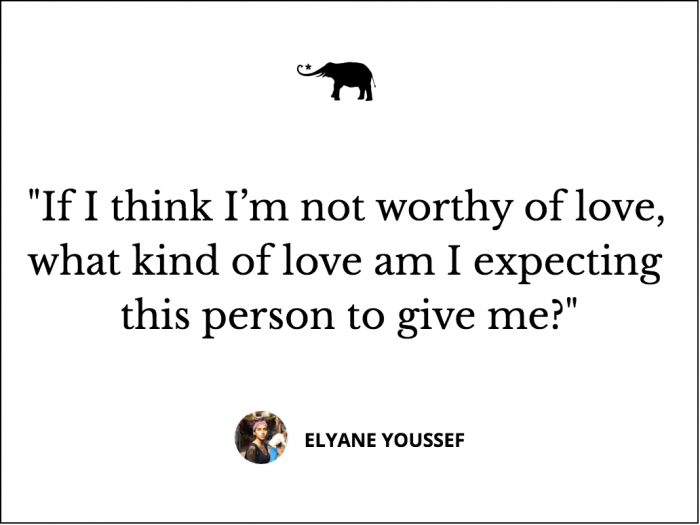I had just finished my Buddhism course in India when I opened my phone that was switched off for the past 12 days.
I opened Instagram and the first thing that popped up in my feed was an image of my ex with his new girlfriend.
That was four months after we broke up.
My heart started racing, and I could feel my sweaty palms and the metallic taste in my mouth due to anxiety. In exactly one second, all the meditation, mantras, and realizations vanished just like that.
I was 26 at the time. I tried to keep it together, but I failed. I ended up messaging him and saying all sorts of toxic things. Minutes after, he called me, and I found myself pacing the garden that had a huge Buddha statue in the middle, holding the phone with one hand, and face-palming myself with the other.
While other people were finally talking to each other after 12 days of complete silence, I was on the phone—crying.
I don’t recall the details of that conversation, but I do remember there was lots of blaming, name-calling, and anger. I forgot almost everything, but one thing was stuck in my head.
He said, “You know what, Elyane? It’s not about me or my girlfriend or even you. Because you may not know it and I don’t blame you for this. Elyane, you just don’t trust yourself.”
Boy, what a big word. I was extremely angry at him. I was so upset that I hung up on him. That line kept playing in my head for years and years and years, and I hadn’t quite figured out what it meant until I was heavily triggered, multiple times, four years later.
That same year, I told my father about my trust issues in my relationship, and he ended up telling me the same thing, “Elyane, I don’t think it’s your boyfriend you don’t trust; I think it’s you whom you don’t trust.”
Looking closer at all my relationships, I’ve realized that my lack of trust sabotaged some of them. And while I never exactly understood what trusting myself meant, now I know that it’s the foundation of any healthy relationship—or friendship.
We always advocate trust in each other when it comes to love, but rarely do we speak about what keeps that trust intact and successful.
If I can’t trust myself, how am I expecting to trust my partner? If I don’t think I’m good enough, how can I trust that this person won’t leave? If I think I’m not worthy of love, what kind of love am I expecting this person to give me?
If trust doesn’t start within, it ends without.
To trust ourselves means that we know who we are, what we want, and what we deserve. It means we know that our relationship is a reflection—a mirror—of the relationship we have with ourselves. It means the way in which our partner acts doesn’t define who we are or dictate our own worth.
To trust ourselves means that we are ready for the ups and downs and bumps. It means we accept the risk that comes with trusting others.
To trust ourselves means self-confidence. We know we’re beautiful (inside out), good enough, worthy enough, smart enough, and we know that our partner sees that too. We know that we may not be perfect, but it’s okay. Self-trust means that we know we may experience unpleasant emotions or moments, but it will pass, and we will learn and heal and go on.
To trust ourselves means that we realize that our lack of trust is a burden we have to carry for the rest of our lives. We know it might damage almost every interaction we have with others, every relationship, every friendship.
Self-trust means we rely on our instincts; we trust our decisions and choices; we set boundaries with others; we communicate what we want; we treat ourselves with kindness and forgiveness; we know (and trust) what we’re giving our partner.
That said, if you can’t trust your partner, ask yourself, “Do I trust myself?”
Even if our partner is not trustworthy, self-trust can guide us toward the right path. It teaches us how to behave, what to say, and whether or not we should leave.
Remember, you are the foundation you want to build in your relationship.
Start with yourself first.
~


 Share on bsky
Share on bsky






Read 5 comments and reply